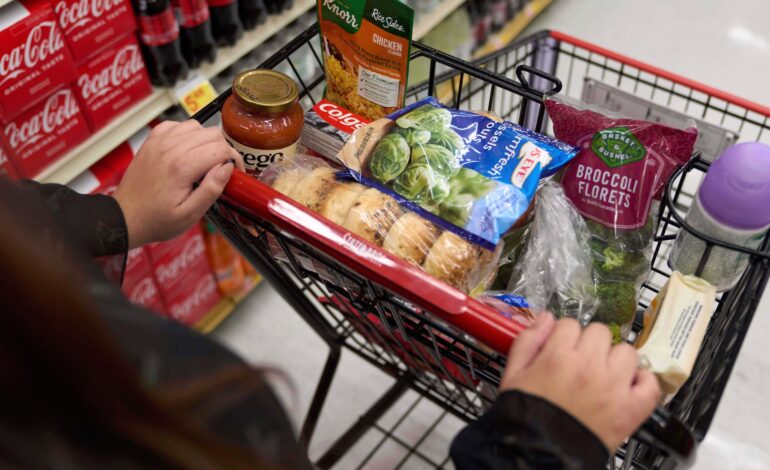New Jersey Faces Food Assistance Crisis Amid Federal Shutdown

The ongoing federal government shutdown, now extending into its 19th day, poses a significant threat to food assistance programs for nearly a million residents in New Jersey. The New Jersey Department of Health has issued a warning that the closure could “compromise access” to the state’s Supplemental Nutrition Assistance Program (SNAP) and the Special Supplemental Nutrition Program for Women, Infants, and Children (WIC) as early as next month.
According to Jeff Brown, acting commissioner of the department, there are serious concerns regarding the potential interruption of benefit payments for these vital programs if the funding lapse continues. “This could make it harder for families across New Jersey to buy the food they need,” Brown stated in a press release. He emphasized that the uncertainty at the federal level is also creating significant anxiety for local partners who provide essential food support in communities throughout the state.
The New Jersey SNAP website has alerted users that benefits “may not be available on time.” Specifically, the alert raises concerns about whether SNAP benefits loaded onto Families First EBT cards prior to October 31, 2025 will be usable after November 1, 2025.
The situation is dire as Brooke Rollins, Secretary of the U.S. Department of Agriculture, announced that SNAP is projected to run out of funds in approximately two weeks. This would put around 42 million Americans at risk of losing their benefits. “You’re talking about millions and millions of vulnerable families, of hungry families, that are not going to have access to these programs because of this shutdown,” Rollins told reporters.
In New Jersey alone, more than 800,000 residents depend on SNAP each month for food assistance. The program, funded by the U.S. Department of Agriculture and administered by the New Jersey Department of Human Services, is crucial for low-income families. Additionally, approximately 165,000 women and children under five years old rely on the WIC program for access to nutritious food and breastfeeding education.
Brown also noted that funds for benefits in the 2026 fiscal year have yet to be appropriated. The impact of the government shutdown could vary across states. Under a recent tax bill signed by President Donald Trump, cuts to SNAP benefits could affect over 22 million households, including 400,000 in New Jersey, as indicated by preliminary analyses.
As of now, it remains uncertain if the Trump administration will intervene to ensure continued funding for SNAP benefits. Earlier in the month, White House Press Secretary Karoline Leavitt stated that $300 million in tariff revenue would be allocated to support WIC.
Residents seeking information about SNAP can visit NJSNAP.gov or follow updates on social media from the New Jersey Department of Human Services. For WIC-related information, updates are available at NJ.gov/health and through the New Jersey Department of Health’s social media channels.
The implications of the ongoing federal shutdown extend beyond administrative delays; they threaten the very food security of families across New Jersey and the nation.






